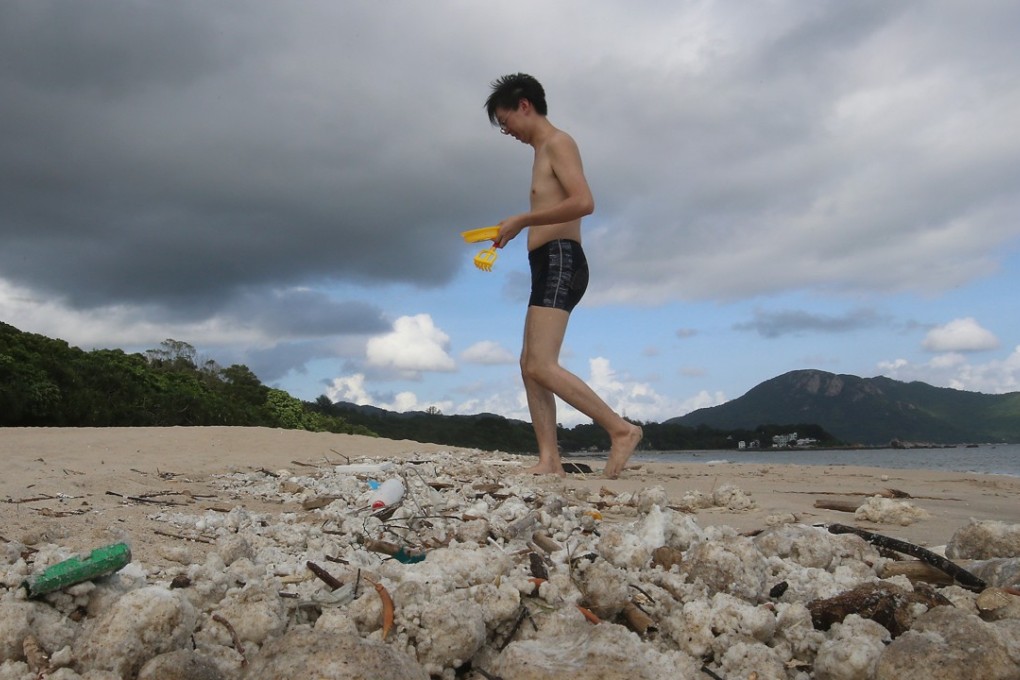Swimmers spotted on closed Hong Kong beaches despite palm oil spill
Authorities say substance is not toxic to humans but doctors warn of health risks such as allergies

Dozens of tourists and beach-goers have ignored warnings about an oil spill that has spread to the Hong Kong’s southern shorelines, choosing to brave the waters on Tuesday despite the closure of 13 beaches.
Some 50 people were seen swimming in Repulse Bay and Deep Water Bay, located on the southern coast of Hong Kong Island, the Post found during visits to the sites.
The two are among 13 beaches closed after 1,000 tonnes of palm oil leaked from a ship collision in mainland waters last Thursday.
Red flags were put up at the beaches, meaning that swimming was considered unsafe and members of the public should not enter the water.
Yet some people, including children, still went for a dip on Tuesday afternoon, unfazed by warnings broadcast over loudspeakers. Others swam as far out as the buoys near the shark net.